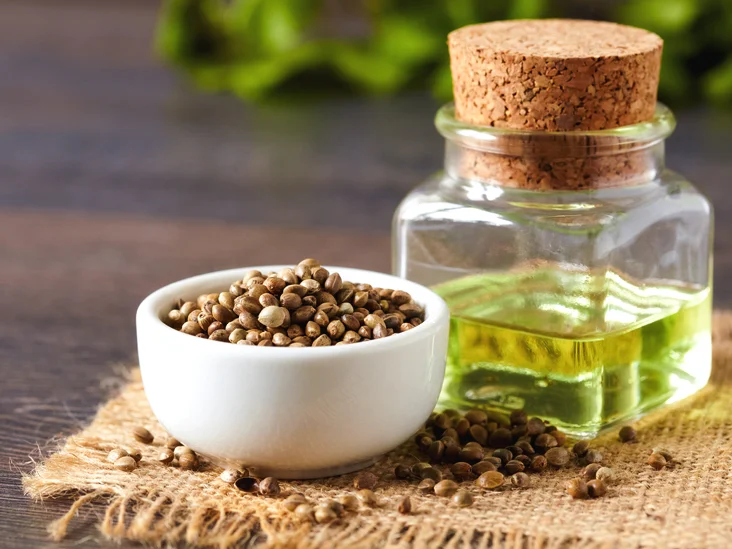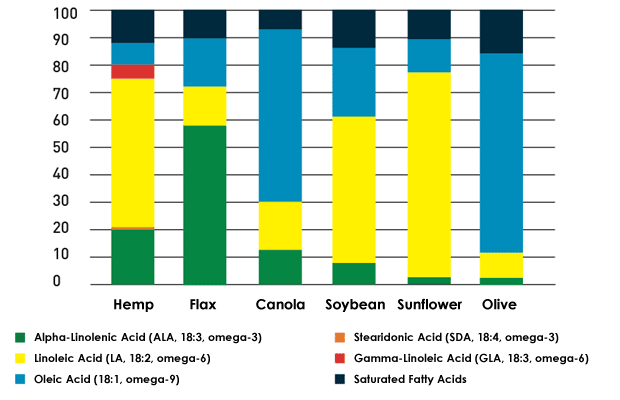Hemp Seed Oil v.s. Other Seed Oils (Pt.1)
The first part of the Nutrition Series, Hemp Seed Oil v.s. Other Seed Oils, focuses on the complex nature of seed oils and gets into the details of why all seed oils aren’t created equal…
First and foremost, let’s recap how Hemp Seed Oil is extracted and how it’s different from other ‘hemp-derived’ products out there like CBD. Hemp oil is not the same thing as hemp seed oil. Put simply, hemp seed oil is made by cold pressing the seeds of the hemp plant, whereas hemp oil is made by extracting the oils from the hemp flower and stalk. If you want to learn more about the difference between the two check out our series: “The Anatomy of the Hemp Seed.”
The use of oil, specific to cooking and food processing, began thousands of years ago, with the help of whatever food materials they had in hand to make oils for cooking purposes. It all started when people learned to use fire and a makeshift oven to heat oily plant products until the plants exuded oil that could then be extracted. The emergence of Soy oil dates as early as 2000 B.C. by the Chinese and the Japanese, while the Southern Europeans had begun to produce olive oil by 3000 B.C.[1] As time passed, many other plants and vegetables were being used for their precious oil.
But have you ever wondered which cooking oil is healthiest?
There’s canola oil, olive oil, and sunflower oil, even hazelnut, avocado, and apricot kernel oil. But each oil has a unique composition of fats and is manufactured in different ways. Some cooking enthusiasts will say that the healthiest oil is the one with the most omega-3s. Others warn against too much chemical processing and opt for “virgin” oils. [2]
But where does Hemp Seed Oil stack up?
Hemp Seed Oil offers Vitamin E, essential fatty acids, and can be used for a variety of food purposes. With a subtle, nutty flavor, the taste of hemp seed oil lends itself well to dressings and sauces. Hemp seed oil offers the highest amount of Omega-3 and the most desirable ratio of LA (omega-6) to ALA (omega-3). Not only does it offer great benefits to the body, but it is also a wonderful skin hydrator and has the ability to relieve severe dryness, and is even helpful with aging skin. With a multitude of health benefits, hemp seed oil is extremely versatile and can be used for food, skin, animals, and can even be used as a wood sealer.
Take a look at the chart comparison below:
Sources:[1] https://www.purti.net/history-of-cooking-oil/#:~:text=It%20all%20began%20when%20people,olive%20oil%20by%203000%20b.c.; [2] https://www.sciencefriday.com/segments/not-all-cooking-oils-are-created-equal/: [3] https://www.fundacion-canna.es/en/nutritional-benefits-of-hemp-seeds



Comments are closed